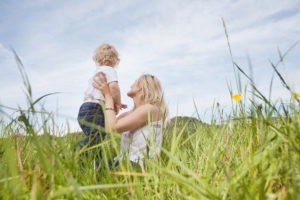
Summer will officially begin today with the summer solstice. For kids, I believe in the words of the Nat King Cole song, ”Roll out those lazy, hazy, crazy days of summer.” June, July and August should allow all of us time to luxuriate in some slow goofiness.
Summer is a period of tremendous physical growth for children. Many children can grow three or more inches in height during these three or four months, and they can add the pounds to go with the inches. It takes a lot of extra eating to put on a pound, as a pound of weight gain requires an additional 3,500 calories.
During this period of physical growth, the child needs a lot of fresh food, exercise and rest. During the summer it can appear that all kids want to do is sleep, play hard, eat, sleep and then do it all again.
We can observe physical growth easily enough and measure the increase with rulers and scales. Even though it may appear as if our children are doing nothing mentally productive during the summer, there is a lot of hidden intellectual growth occurring,
The time to be outdoors and chase bees, pick clover, dig lakes and make dams in the mud, have picnics or lie on a quilt and watch the clouds morph from giant bears to Abraham Lincoln, helps create mental connections that can only be made in an environment that is closer to boring than exciting.
As our children have the time to watch the clouds, a certain type of self-reliance emerges.
The child is free to let his or her thoughts wander. With time to cloud watch instead of clock watch, our children have the opportunity to perhaps see their lives in a perspective not hemmed in by the demands of a daily routine.
Cloud watching is serious business and may not come intuitively to our children.
We must model the ability to step back and savor the passage of time.
Take a picnic blanket, and head outdoors for a morning or afternoon of earnest cumulus, cirrus and stratus cloud viewing. (Be wary of chiggers, ticks and other unwanted visitors. Take sunscreen, hats and sunglasses.) Lie down in a grassy spot and look up at the trees. Watch, and then ask your children what kinds of things live in the trees. Can they see any animals in the tree? What else can they see? What sounds do they hear? What do they smell? Can they taste anything? What do they feel? What do the clouds make them think about?
Afterwards, either on your blanket or indoors, help your children write a sensory poem by asking the questions you asked outdoors. Invite them to illustrate their poems.
Here’s a poem written by a five-year-old friend after a session of thoughtful cloud watching. Perhaps these words will help you see some of what’s growing inside a mind during those lazy, hazy, crazy days of summer.
Outside
I see the sky, the trees, a butterfly
I smell the grass
I hear the neighbor’s lawnmower, the wind in the trees
I feel the wind in my hair
I taste the air in my mouth
I kiss a cloud


One Response to “Cloud Watching”